A teacher who went bald in less than a week has retrained as a cosmetic tattoo artist to help others cope with hair loss.
Emma Holmes now says she helped thousands of people dealing with alopecia.
Emma herself went through drastic hair loss after a sudden hormone change caused by an ectopic pregnancy made all her body hair fall out in just a few days.
Describing her own experience of the rare hair loss condition as "terrifying," Emma now works as a cosmetic and medical tattoo technician.
Emma tattoos on eyebrows for women who also lost theirs to alopecia.

As Emma explains, losing her hair was the worst ever period of her life. Much of the work she does now as a tattoo artist at Medicare Cosmetics is to provide psychological and emotional support for people going through what she did.
Said Emma:
"When my hair started falling out I didn't go out of the house for weeks and weeks."
"I just stayed at my parents' home and cried quite literally non-stop, thinking to myself, 'I'm not a bad person, I work hard and treat people kindly – so why has this happened to me?'"
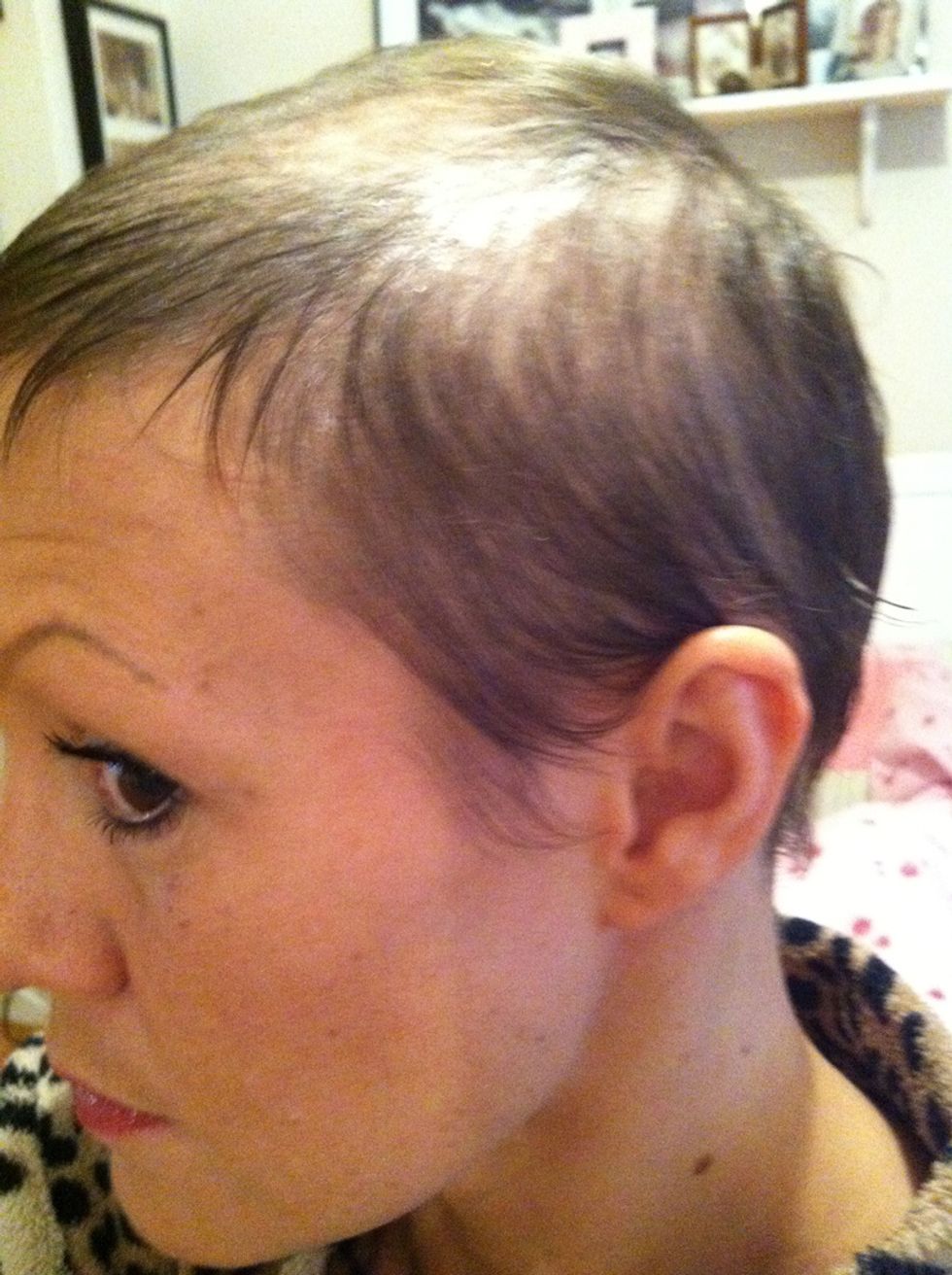
She added:
"For a woman, losing your hair is absolutely terrible. I know what you go through and it's horrible, so now I want to help other people who are trying to deal with this as much as I can."
For Emma, the onset of alopecia started when she discovered she was pregnant in June 2009. She never thought she could conceive after a burst appendix when she was 16 damaged her reproductive organs.
However, heavy bleeding indicated all was not well. Emma was quickly diagnosed with an ectopic pregnancy—a complication that affects roughly one in 80 pregnancies where the embryo is fertilized outside the womb.
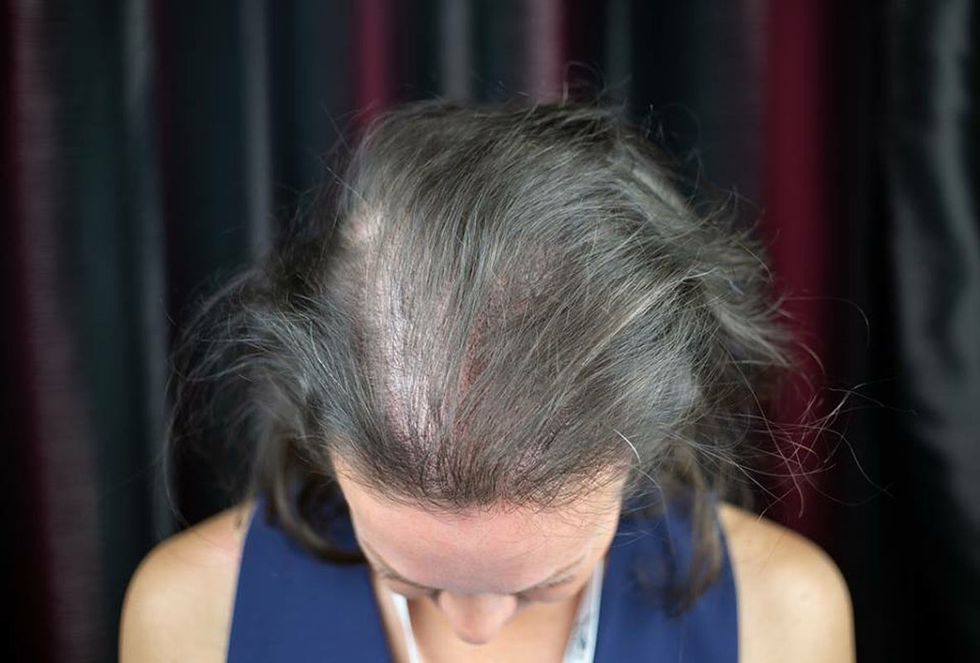
Emma underwent surgery to have one of her fallopian tubes removed—a procedure which sadly cannot save the pregnancy. But just a couple of days later, while staying with her parents, Julie and George, she began to notice some very unexpected side effects.
Emma recalled:
"It was my mum who realized first."
"She looked over at me one day and noticed that there was hair all over my shoulders and on my jumper."
"I thought it seemed odd but didn't think too much about it. Then I got into bath and that's when I realized that something was terribly wrong."
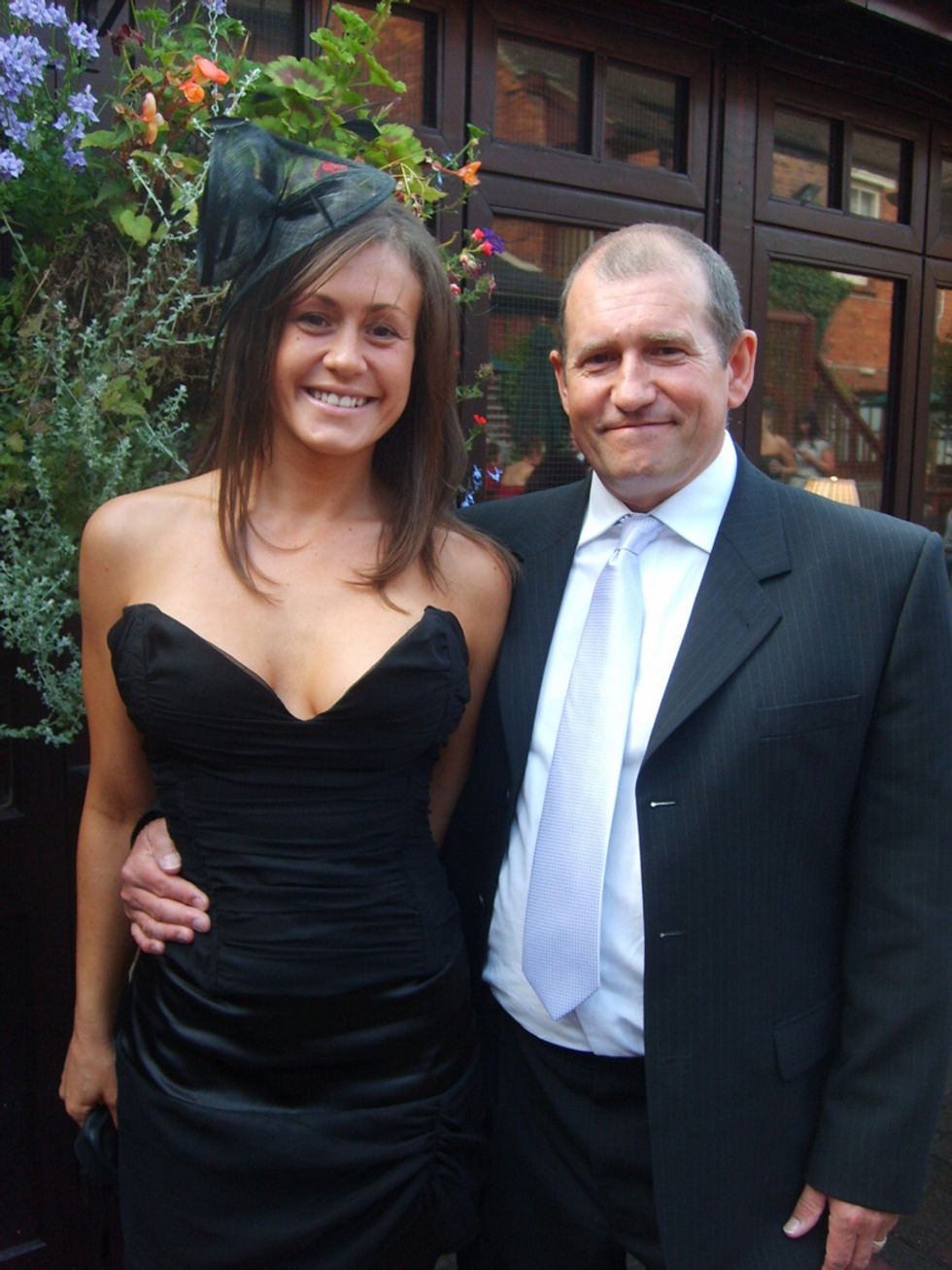
Washing her hair, Emma was horrified when large clumps of her long brown locks started coming out in her hands. At the time, Emma was working as a substitute teacher at local primary schools.
Emma said:
"It was utterly terrifying. My hair was just coming out in handfuls and I couldn't stop it."
Emma's hair loss carried on for the next few days. Eventually all of the hair on her body—including her eyebrows and eyelashes—was gone, leaving her head entirely bald.
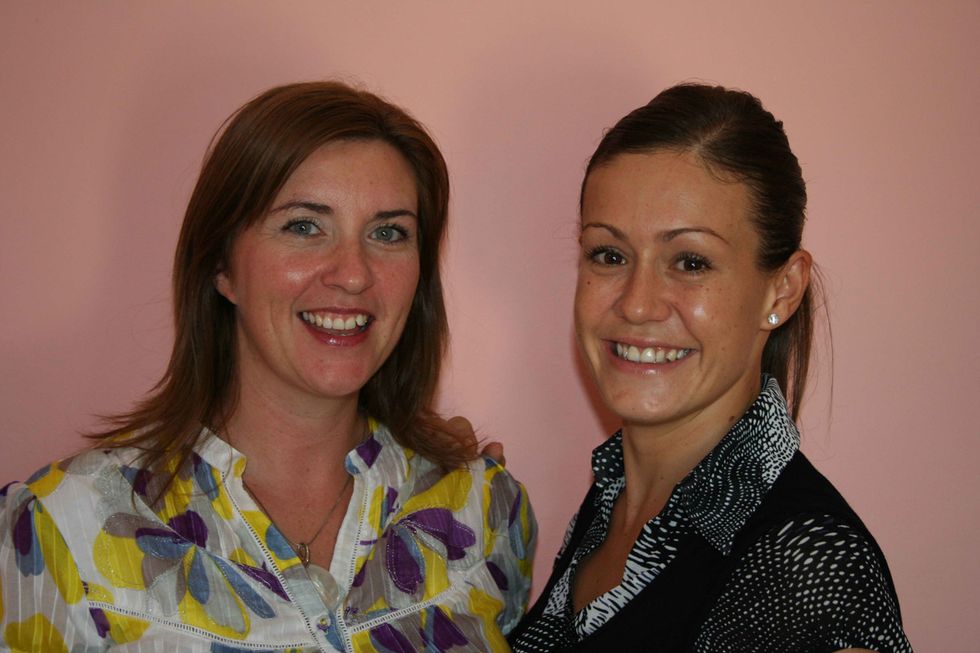
She recalled:
"I have no words to describe how devastating that is. I was never the sort of person before who was particularly obsessive about my appearance—I'd wake up each morning, put on a bit of mascara and tie my hair up in a ponytail, and that was it."
"But from that day when I looked in the mirror, I didn't see the same person."
Emma was so shocked, she stopped working. She didn't leave the house for four weeks except to visit the doctors to try to find out what was happening to her.

Blood tests were taken, but no definite answer could be given as to why her hair had fallen out so dramatically and in such a short space of time.
Emma said:
"I never really got an answer."
"The doctors just said that it was probably to do with a sudden change in my hormone levels after they removed my fallopian tube. Knowing that didn't make it any better though."
Feeling embarrassed and self-conscious, Emma thought no man could ever want her looking the way she did. She broke up with her then boyfriend although he still wanted to continue the relationship.

The only place she felt safe was with her parents, without whom she thinks she wouldn't have survived the ordeal.
Emma explained:
"My mum and dad were wonderful."
"They were both devastated too, but they didn't ever really show it. They were just there for me, and really took care of me when I needed it most."
But after a month of hiding away indoors, Emma knew that it was time to come to terms with the cards life had dealt her.

After buying a brown synthetic wig—which she says she always wore with a hat for fear of it falling off—she found work as a nanny looking after a six-month-old baby.
The experience was just what Emma needed to get back on her feet. She says her employers—realizing how vulnerable she still was—were incredibly kind to her.
They treated her as part of the family. This helped to restore Emma's confidence.
The occasional negative comment, however, was a reminder of how fragile that confidence was. Though people were mostly very kind to her, it only took one comment to knock her back.

Emma recalled:
"I remember someone once said something to me about the color of my wig not suiting me. It was just a small throwaway comment but it sent me home crying."
Surfing the internet obsessively for ways of dealing with her new baldness, Emma eventually stumbled across cosmetic tattooing. This technique permanently pigments the skin for various reasons.
In 2011, Emma decided to have eyebrows tattooed where hers had fallen out.
However, the tattooing was done so poorly that Emma was so upset, she tried to wash it off when she got home.
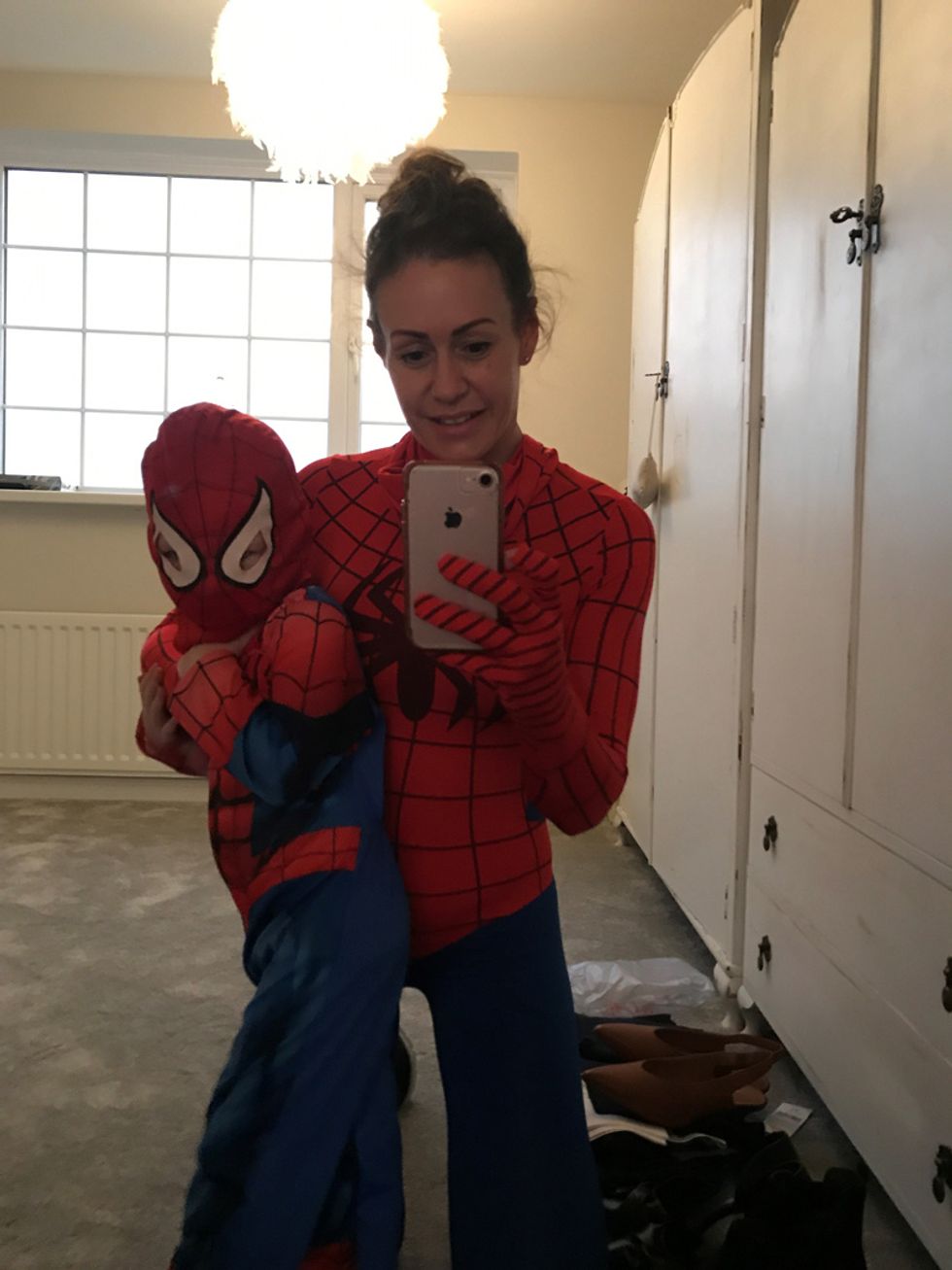
She said:
"It was terrible and I cried and cried afterwards, thinking to myself, 'I could do a better job than this'."
A natural do-gooder, Emma, who was again without full-time employment, realized this could be an opportunity for her to help others.
Retiring from her job as a teacher for good, Emma enrolled in a six-month training course in 2011 at the Finishing Touches school in West Sussex. Her plan was to become a tattoo technician.
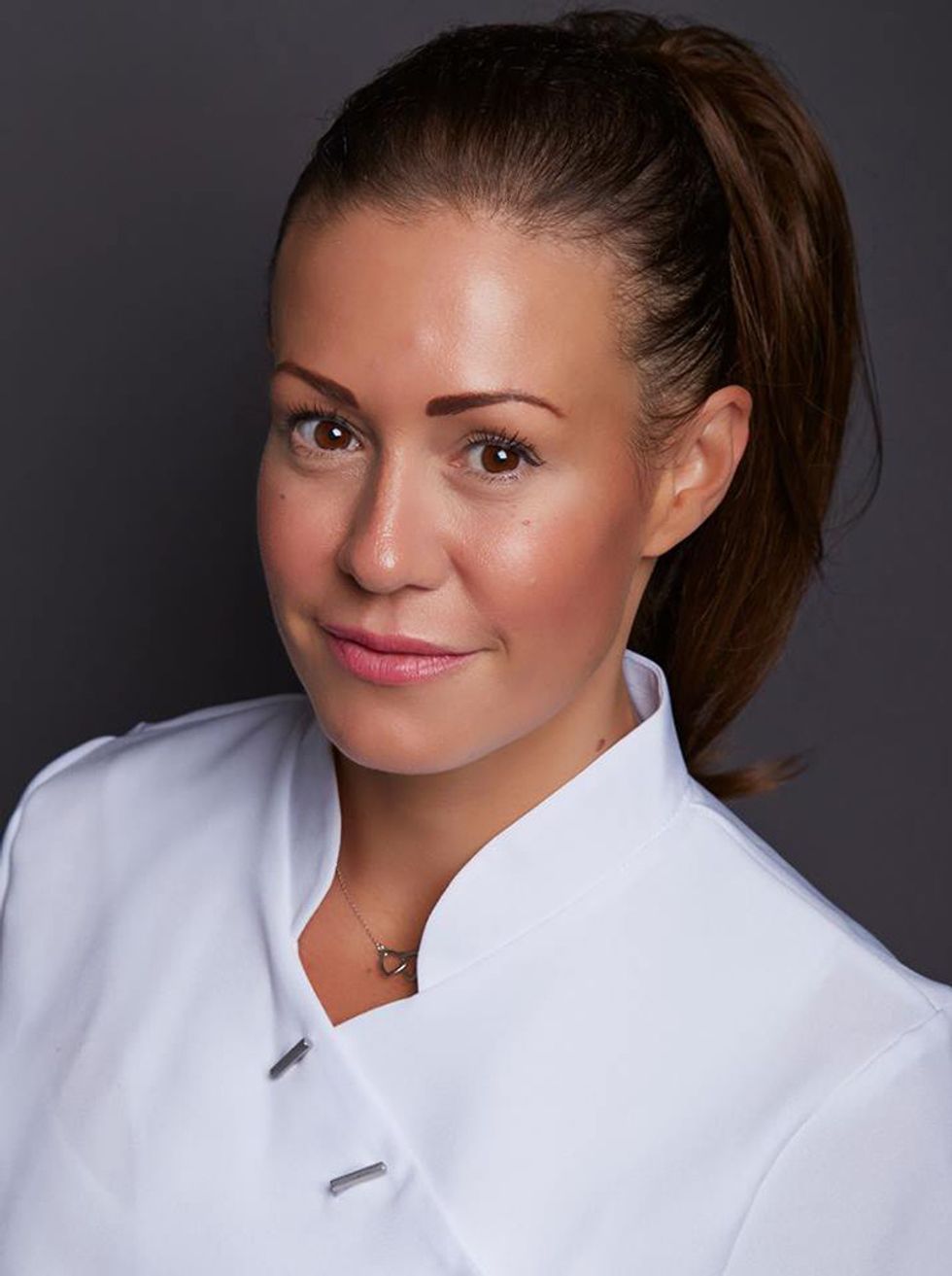
Since then she has treated thousands of people who come to her for a range of reasons , but who, like her, want something to help restore their self-esteem.
Emma said:
"My clients vary in age from 14 to mid-80s. They all have different stories as to why they come to me for help, but because I've been through it too I can sympathize and feel a solidarity with them."
Eating a fully organic diet and having scalp injections which push a steroid under the skin promoting hair growth, Emma's hair even started to grow back, albeit very finely. She no longer requires a wig.
Emma says that now, after all those years of anguish, she finally feels comfortable in her own skin again.
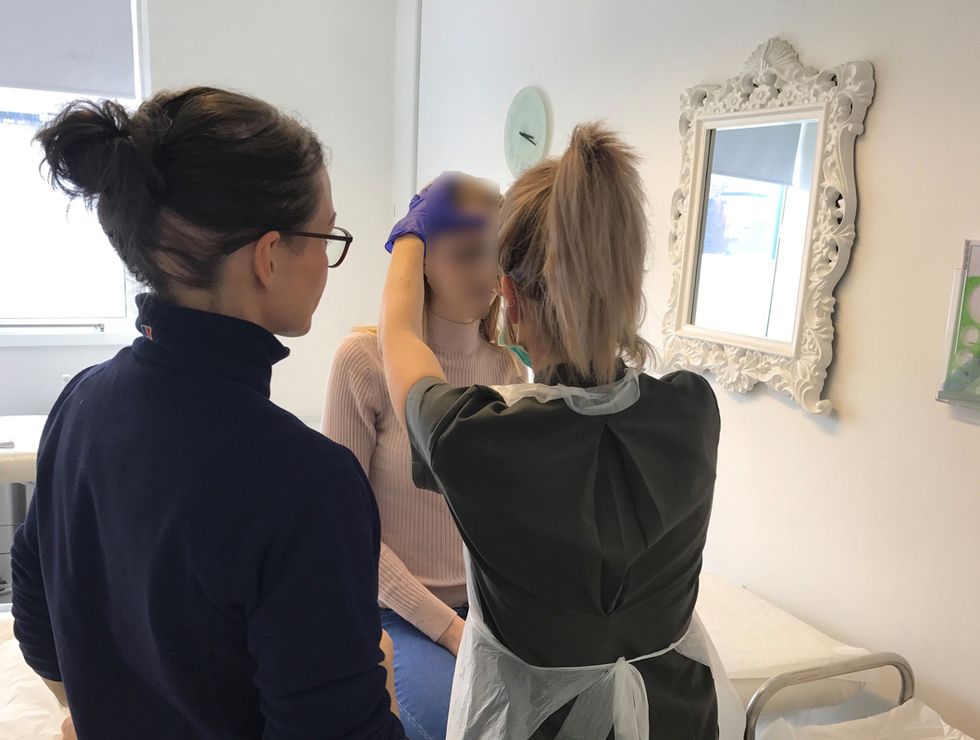
She said.
"I tell people who come to me for treatment, 'You will survive this'. I hate the saying 'time is the best healer', but it's really true—things do get better."
A version of this article originally appeared on Press Association.













 @hasanminhaj/TikTok
@hasanminhaj/TikTok @hasanminhaj/TikTok
@hasanminhaj/TikTok @hasanminhaj/TikTok
@hasanminhaj/TikTok @hasanminhaj/TikTok
@hasanminhaj/TikTok @hasanminhaj/TikTok
@hasanminhaj/TikTok @hasanminhaj/TikTok
@hasanminhaj/TikTok @hasanminhaj/TikTok
@hasanminhaj/TikTok @hasanminhaj/TikTok
@hasanminhaj/TikTok @hasanminhaj/TikTok
@hasanminhaj/TikTok @hasanminhaj/TikTok
@hasanminhaj/TikTok @hasanminhaj/TikTok
@hasanminhaj/TikTok @hasanminhaj/TikTok
@hasanminhaj/TikTok @hasanminhaj/TikTok
@hasanminhaj/TikTok @hasanminhaj/TikTok
@hasanminhaj/TikTok @hasanminhaj/TikTok
@hasanminhaj/TikTok @hasanminhaj/TikTok
@hasanminhaj/TikTok @hasanminhaj/TikTok
@hasanminhaj/TikTok @hasanminhaj/TikTok
@hasanminhaj/TikTok @hasanminhaj/TikTok
@hasanminhaj/TikTok @hasanminhaj/TikTok
@hasanminhaj/TikTok

 @TMZ/Instagram
@TMZ/Instagram @theshaderoom/Instagram
@theshaderoom/Instagram @theshaderoom/TikTok
@theshaderoom/TikTok @TMZ/TikTok
@TMZ/TikTok @theshaderoom/TikTok
@theshaderoom/TikTok @TMZ/Instagram
@TMZ/Instagram @theshaderoom/Instagram
@theshaderoom/Instagram @TMZ/Instagram
@TMZ/Instagram @TMZ/TikTok
@TMZ/TikTok @theshaderoom/TikTok
@theshaderoom/TikTok @TMZ/TikTok
@TMZ/TikTok @theshaderoom/TikTok
@theshaderoom/TikTok @TMZ/TikTok
@TMZ/TikTok @theshaderoom/TikTok
@theshaderoom/TikTok @TMZ/TikTok
@TMZ/TikTok